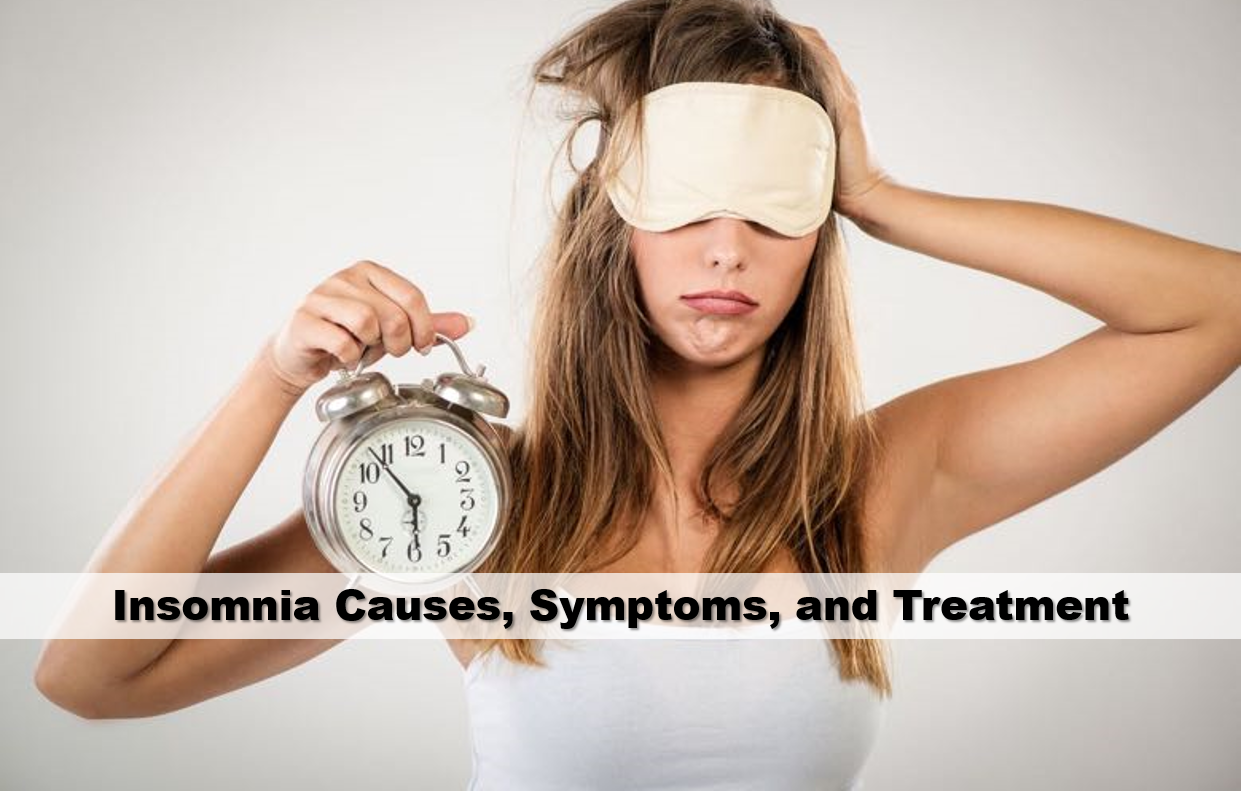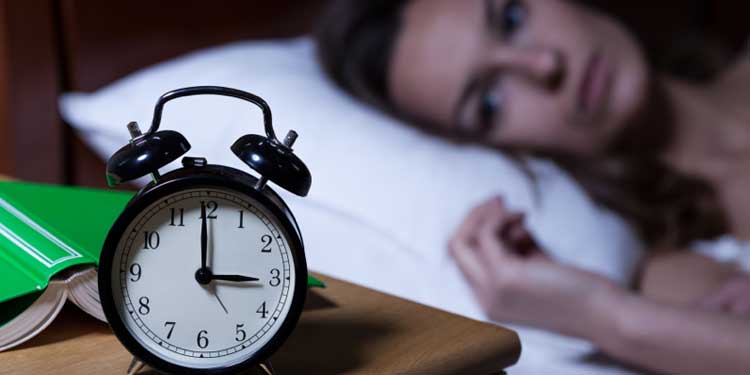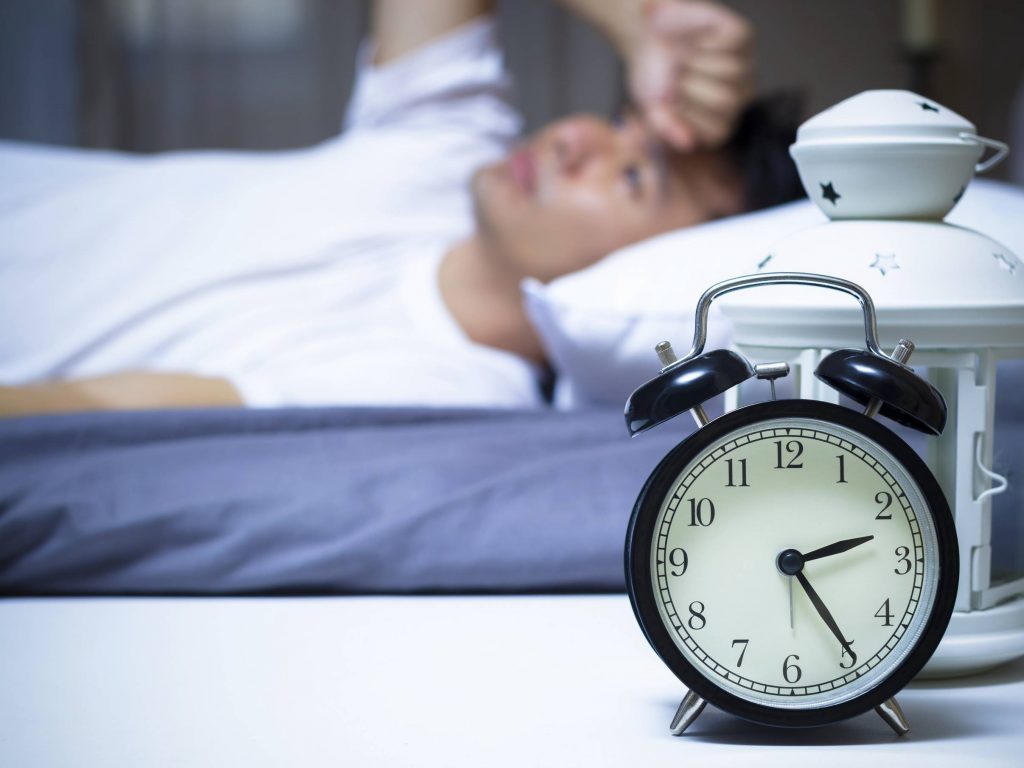Insomnia Causes, Symptoms, and Treatment

What causes insomnia? Can insomnia go away on its own? Sleep is one of the essential factors that determine the general health and quality of life of a person. Therefore, insomnia can cause a significant deterioration in people’s health and quality of life. Insomnia is a common sleep disorder that makes it difficult to fall asleep and stay asleep, or cause waking up too early and not being able to go back to sleep. Sleep is as significant as a healthy diet and regular physical activity. Regardless of the cause of your sleep loss, insomnia can affect you both mentally and physically. People experiencing insomnia have a lower quality of life than people who sleep well. Here, we will explain Insomnia causes, symptoms, and treatment. You can read the rest of the text to learn more about how to diagnose insomnia.
What Is Insomnia?
People with insomnia feel tired when they wake up. Insomnia can reduce not only energy level and mood but also health, work performance and quality of life. Although how much sleep a healthy adult needs varies from person to person, experts believe that seven to eight hours per night is sufficient. Many people may experience short-term (acute) insomnia during a period of their life, which lasts days or weeks. Such conditions are usually observed as a result of stress or traumatic events. However, some people experience prolonged (chronic) insomnia for a month or more. Insomnia itself may be a primary problem or may be caused by a different medical condition or medications used.

Insomnia Causes
Chronic insomnia is often the result of stress, life events, or sleep-disturbing habits. Treating the underlying cause can solve insomnia, but in some cases, treatment can last for years. Common causes of chronic insomnia can be listed as follows:
- Stress: Worries about work, school, health, finance, or family can keep the mind active at night and make it difficult to sleep. Stressful life events or traumas, such as death or illness of a loved one, divorce, or dismissal can also lead to insomnia.
- Travel or work: Circadian rhythms, called the internal clock of the body, can be disrupted due to travel or business working hours. Examples include jet lag, working late or early, and changing shifts.
- Bad sleeping habits: Bad sleeping habits include irregular bedtime, stimulating activities before bedtime, an uncomfortable sleeping environment, and using your bed for work, dining, or watching TV. Using computers, televisions, video games, smartphones, or other devices just before bedtime affects the sleep cycle.
- Eating too late in the evening: Light snacks or junk foods which are eaten before bedtime may not be uncomfortable. However, eating too much will make you feel physically uncomfortable, while you are lying down. Many people suffer from heartburn and acid reflux, which causes food to escape from the stomach into the esophagus when they take their main meals close to bedtime. Such situations make it difficult to fall asleep.
- Medication: Chronic insomnia may also be associated with medical conditions or the use of certain medications. Treatment of the medical condition may help improve sleep, but, in some rare cases, insomnia may persist after the medical condition has improved.
Insomnia Symptoms
Symptoms of insomnia may include:
- Difficulty falling asleep at night
- Wake up at night
- Wake up too early
- Not feeling rested after night’s sleep
- Fatigue
- Nervousness, depression, or anxiety
- Having difficulty in focusing or remembering
- Having concerns about sleep

Insomnia Risk Factors:
Anyone can experience insomnia occasionally. However, those with the following characteristics are at higher risk of insomnia:
- Women: Hormonal changes observed during the menstrual cycle and menopause may affect sleep. Night sweats and hot flashes during menopause often affect sleep. Insomnia is a common condition in pregnancy.
- Above 60 years: Insomnia increases with age due to changes in sleep patterns and health.
- Mental health disorders or physical health: Many issues that affect your mental or physical health can also affect sleep.
- Stress: Stressful times and events can cause temporary insomnia. Large or long-term stress can also cause chronic insomnia.
- Irregular lifestyle: Changing shifts, for example, at work or traveling, can disrupt the sleep-wake cycle.
Insomnia Diagnosis
Depending on your situation, the following can be done to diagnose and search for the cause of insomnia:
Physical examination: If the cause of insomnia is unknown, your doctor may perform a physical examination to find signs of medical problems that may be caused by insomnia. Sometimes a blood test may be ordered to eliminate thyroid problems or other medical conditions that may be associated with sleep.
Examining your sleeping habits: Your doctor may ask you questions about sleep and ask you to fill out a questionnaire. Sometimes the patient is asked to keep a diary for several weeks.
Research in the sleep center: If the cause of insomnia is not clear, or if you have other sleep disorder symptoms such as sleep apnea or restless leg syndrome, it may be necessary to spend the night in a sleep center. Functions such as brainwaves, breathing, heartbeat, eye movements, and body movements are monitored and recorded while you sleep.

Insomnia Treatment
What good is insomnia? it is an issue that many people wonder. There are different therapies and treatments besides prescription and over-the-counter medications that can eliminate insomnia. These can be summarized as follows:
Cognitive-behavioral therapy for insomnia: Cognitive behavioral therapy for insomnia can help you control or eliminate negative thoughts and actions that keep you awake, and is often recommended as the first treatment for insomnia patients. Typically, this method can be equal to or more effective than sleeping drugs.
Prescription drugs: Prescription sleeping pills can help you fall asleep, stay asleep, or both. Doctors generally do not recommend relying on prescription sleeping pills for more than a few weeks. However, several drugs have been approved for long-term use. Prescription sleeping pills can cause some side effects or create habits, so you should talk to your doctor about these drugs and other possible side effects. Your doctor may suggest other strategies for your lifestyle and sleep environment to help you develop habits that promote healthy sleep and daytime alertness. Good sleep habits can help prevent insomnia and support healthy sleep.
- Keep your bedtime and waking hours consistently, including weekends
- Make your bedroom comfortable to sleep and use it for sleep only
- Regular activity helps ensure a good night’s sleep
- Check your medications to see if they cause insomnia
- Avoid or limit short sleep during the day
- Avoid or limit caffeine and alcohol, and do not use nicotine
- Avoid excessive food intake before going to bed
- Create a relaxing bedtime ritual like taking a warm bath, reading or listening to soft music
Here, we explained the causes, symptoms, and treatment of insomnia in the text above. You can also look at “How To Beat Insomnia” to learn how to get rid of insomnia at home.





